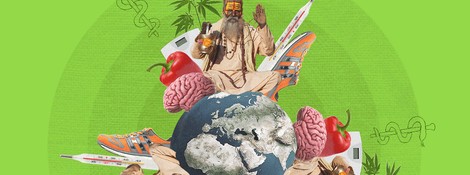Your podcast discovery platform
Curious minds select the most fascinating podcasts from around the world. Discover hand-piqd audio recommendations on your favorite topics.

piqer for: Boom and bust Health and Sanity Global finds Doing Good
Danielle Batist is an experienced freelance journalist, founder of Journopreneur and co-founder of the Constructive Journalism Project. She lived and worked all around the globe and covered global and local stories of poverty, exclusion and injustice. Increasingly, she moved beyond ‘problem-reporting’ to include stories about the solutions she found. She witnessed the birth of the new nation of South Sudan and interviewed the Dalai Lama. She reported for Al Jazeera, BBC and the Guardian and regularly advises independent media organisations on innovation and sustainability. She loves bringing stories to the world and finding the appropriate platforms to do so. The transformation of traditional media fascinates rather than scares her. While both the medium and the message are changing, she believes the need for good storytelling remains.
When Positive Thinking Isn’t Helpful
In today’s filter-bubbled world, I’m always grateful to find stories, columns or interviews that alter my view, particularly on issues I thought I already knew well. This opinion piece by Dr Mark Taubert, clinical director for palliative medicine at the Velindre Cancer Centre in Cardiff, UK, did just that.
As a journalist and founder of the Constructive Journalism Project, I tend to move beyond problems to focus on solutions. Having shared various ‘what works’ stories on Piqd too, I thought it would be fitting to include this piece to broaden the offering. The medical angle of the article particularly struck a chord with me, as I recently spent time visiting family in a hospice and witnessed how accepting negativity can actually strengthen us.
Taubert puts it eloquently in this piece, drawing from his own extensive experience: “I have seen it create a sense of calm, that is, to spend more time getting used to the very real possibility that things will work out not so well. In fact, a little bit of pessimism can considerably dampen unhelpful and impatient expectations for the future weeks and months.”
Another argument he puts forward made me rethink the quest for positivity in light of today’s networked world: “Hope and positivity, with regard to our lives, careers, governments, environment and indeed our health, is assumed and expected; you see happy, smiling images everywhere on social media and blogs. The incompatibility between our positivity aspirations on the one hand, and the reality of life on the other, generates the disheartening setbacks.”
Taubert’s take away, to plan for the worst yet hope for the best, is a helpful reminder to balance positivity with realism.
